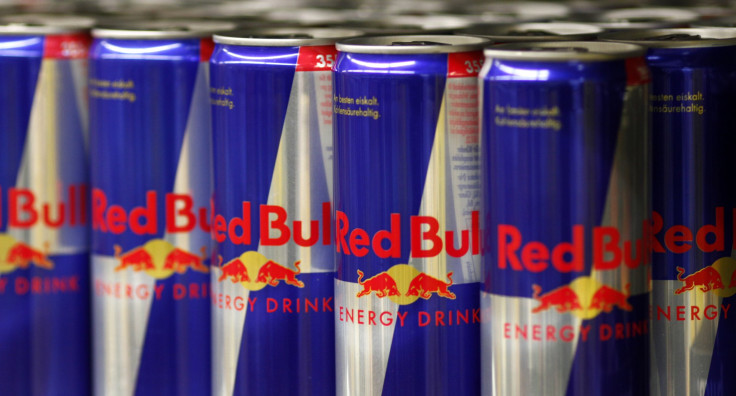Red Bull Settlement Refund Checks Likely Under $10 Per Customer

Red Bull not only doesn’t give you wings, it also probably won’t be giving you $10. News that Red Bull is refunding millions of dollars to its American customers as part of a false advertising settlement agreement went viral Wednesday, as scores of consumers sought to cash in on a portion of the payout. Under the terms of the settlement, Red Bull GmbH seemed to be required to dole out a $10 check or $15 in Red Bull products to every person who successfully files a claim form stating that they purchased a Red Bull energy drink since Jan. 1, 2002.
But it turns out that there is an important caveat to the agreement, and now that the settlement has become a major news story, there are likely to be some unhappy check recipients.
The caveat is that the amount of the settlement is capped at just $6.5 million (not the full settlement amount of $13 million as has been erroneously reported elsewhere, as only half of that amount will go to paying the refund checks), according to the legal terms of the settlement. So, if for instance 650,000 people were to attempt to claim the $10 option -- for these hypothetical scenarios (and simplicity's sake), imagine that no one opts for the $15 in Red Bull products -- the funds would be exhausted and each person would get the $10 they expect.
But, if more than 650,000 people claim the $10 option, rather than denying refunds to the other members of the class of eligible consumers, the agreement stipulates that the $6.5 million should be divided by the number of people in the class. If 6.5 million people were to have claims for $10 accepted, each person would instead only receive a check for $1. On the other hand, if less than 650,000 people have claims for $10 accepted, they will receive checks for more than that amount. If only 100,000 people had their claims for $10 accepted, for instance, each person would receive a check for $65.
Here’s the relevant language that all applicants agree to when filling out refund claim forms online:
“Under the terms of the settlement, certain conditions may lead to Class Members with valid claims receiving either less or more than the amounts specified herein. For example, the cash reimbursed and/or value of the products being distributed will be reduced proportionately among all Class Members with valid claims if the total amount of eligible claims exceeds the fund (minus applicable notice and tax expenses) provided by Red Bull for the settlement -- referred to as the ‘Settlement Fund.’ If, on the other hand, there are excess funds in the Settlement Fund at the end of the claims period, such funds may be used to increase proportionally the amount of validly claimed cash reimbursements or products, depending on the claims rate. With respect to the distribution of product, to the extent commercially reasonable in its discretion, Red Bull shall attempt to ‘round up’ the amount of free product to be shipped to the claimant, so that the amount of free product obtained by a claimant is maximized to the extent commercially reasonable.”
Either way, Red Bull has to pay out $6.5 million in refunds under the settlement agreement. The individual consumer’s cut of the deal, however, is dependent on the number of claims that are accepted. Chances are, the refunds will end up equaling less than $10 per person for the following reasons:
- The claim site was down for most of Wednesday and Thursday, most likely due to traffic overload.
- The term “Red Bull” was the top search term on Google Trends for much of Thursday morning.
- A BuzzFeed article on the settlement posted Wednesday afternoon already has nearly 5 million views.
The January 2013 lawsuit against the Austria-based Red Bull GmbH argued that the class -- represented by longtime Red Bull drinker Benjamin Careathers -- was misled by the “Red Bull gives you wings” slogan into believing that the energy drink could increase consumers’ speed and athletic performance, according to a report by beverage industry news source BevNET. “Such deceptive conduct and practices mean that [Red Bull’s] advertising and marketing is not just ‘puffery,’ but is instead deceptive and fraudulent and is therefore actionable,” the lawsuit states.
The company agreed in August to pay more than $13 million to settle the false-advertising suit. The settlement fund will contain $6.5 million to be doled out to consumers who purchased Red Bull over the past 12 years, but Red Bull denies misleading consumers.
"Red Bull settled the lawsuit to avoid the cost and distraction of litigation," the company told BevNET in a statement. "However, Red Bull maintains that its marketing and labeling have always been truthful and accurate, and denies any and all wrongdoing or liability."
© Copyright IBTimes 2024. All rights reserved.





















